
In the vast world of industrial piping systems, every component, no matter how small, plays a critical role in ensuring operational integrity, safety, and efficiency. Among these essential parts is the stainless steel cap, a fitting designed to provide a secure and permanent seal to the end of a pipe. This comprehensive guide delves into every facet of the stainless steel cap, exploring its technical specifications, manufacturing processes, diverse applications, and what sets premier manufacturers apart. Whether you're an engineer designing a complex petrochemical plant, a project manager overseeing a water treatment facility, or a fabricator seeking a custom stainless steel chimney cap, this article provides the expert knowledge you need.
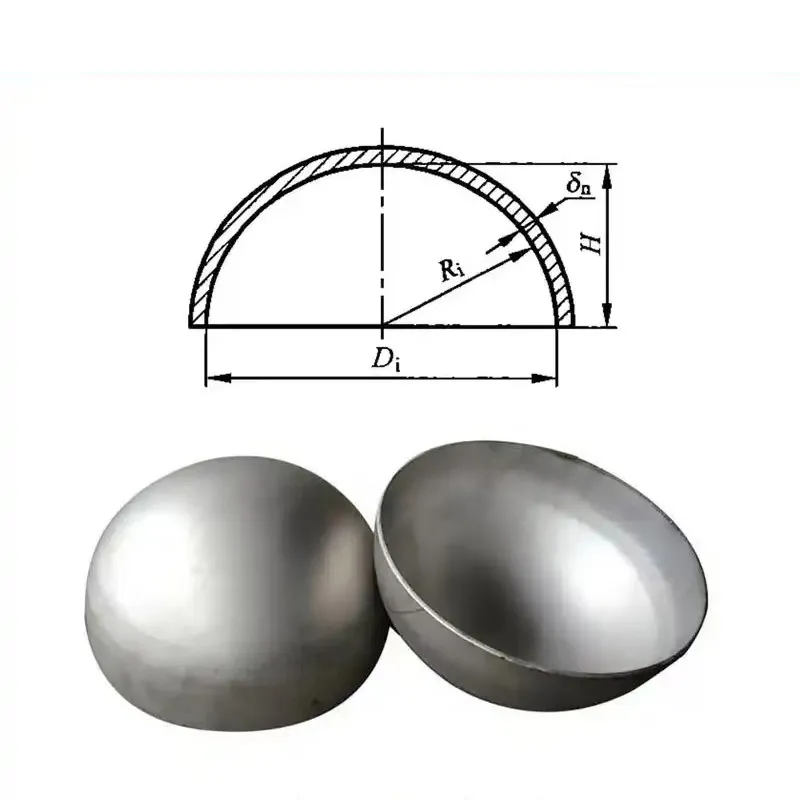
A pipe cap is a type of pipe fitting whose primary function is to terminate a pipeline. It covers the pipe end, protecting it from dirt, moisture, and other contaminants during storage or transport, and more importantly, it seals the end of a piping system to stop the flow. Stainless steel caps are particularly valued for their exceptional properties, which make them suitable for demanding environments. They are available in various forms, with the most common being the butt weld pipe cap and the threaded steel cap.
The global market for industrial pipe fittings, including the stainless steel cap, is on a significant upward trajectory. According to market analysis, the demand is driven by rapid industrialization, infrastructure development in emerging economies, and the stringent safety and environmental regulations in the oil & gas, chemical, and power generation sectors. Stainless steel, with its superior lifecycle cost and resistance to corrosion, is increasingly becoming the material of choice over traditional carbon steel in critical applications. The chart below illustrates the projected market growth, highlighting the expanding role of high-performance alloys.
This illustrative chart shows a consistent upward trend in demand for high-grade stainless steel fittings due to industrial expansion and stricter regulatory standards.
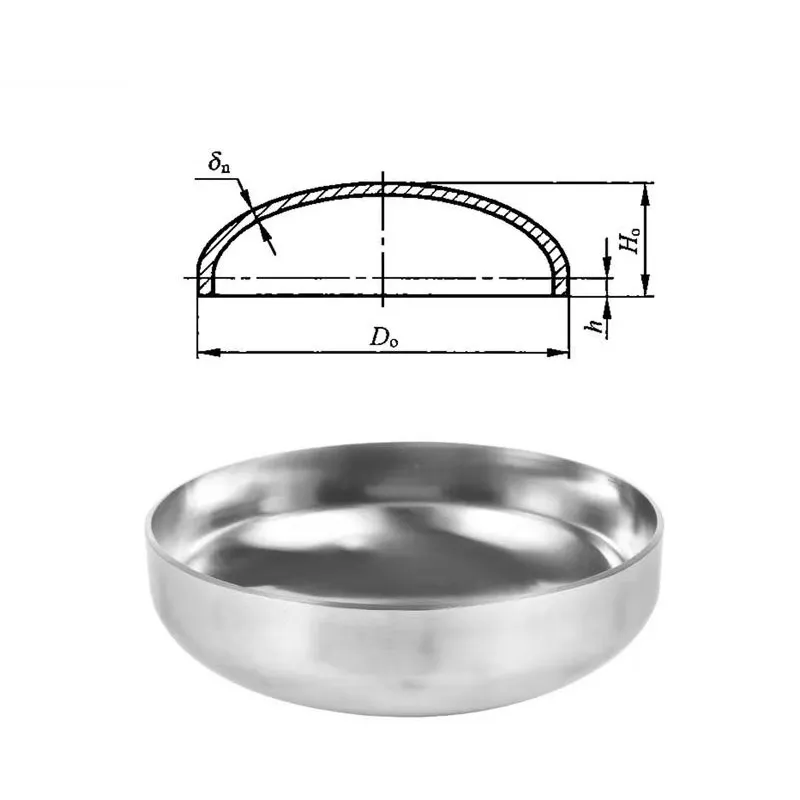
A deep understanding of the technical parameters is crucial for selecting the right stainless steel cap. These specifications are governed by international standards to ensure interchangeability, safety, and performance. Reputable stainless steel cap manufacturers, like LION-PIPELINE, adhere strictly to these standards.
| Parameter | Specification Details | Importance |
|---|---|---|
| Nominal Pipe Size (NPS) | 1/2" to 72" (DN15 to DN1800) | Defines the size of the pipe the cap will fit. Must match the pipeline's NPS. |
| Wall Thickness (Schedule) | SCH 5S, 10S, 40S, 80S, XS, XXS, etc. | Crucial for pressure containment. The schedule number must match the pipe's schedule to ensure a consistent internal bore and pressure rating. |
| Manufacturing Standards | ASME B16.9, MSS-SP-43, DIN 2617 | Guarantees dimensional accuracy, tolerances, and material requirements, ensuring global interchangeability and safety. |
| Material Grades | ASTM A403 WP304/304L, WP316/316L, Duplex, Super Duplex | The choice of material determines corrosion resistance, temperature limits, and strength. 316L is superior to 304 in corrosive environments. |
| End Connection | Butt Weld (Bevel End per ASME B16.25), Threaded (NPT/BSPT) | Determines the method of joining the cap to the pipe. Bevel ends are prepared for optimal welding penetration. |
| Surface Finish | Pickling, Passivation, Sand Blasting, Polished | Affects corrosion resistance and aesthetics. Passivation forms a protective oxide layer, enhancing longevity. |
The journey of a stainless steel cap from a piece of raw material to a precision-engineered component is a testament to modern metallurgical and manufacturing expertise. The process ensures that each cap can withstand immense pressure and harsh environments. Here’s a detailed breakdown of the typical manufacturing flow for a high-quality forged butt weld pipe cap:
Selection of certified stainless steel billets (e.g., ASTM A403) with full traceability (MTC EN 10204 3.1).
The billet is heated to a precise temperature and formed into a cap shape using a die and press (hot forming), ensuring a refined grain structure and superior strength.
Solution annealing is performed to relieve internal stresses, optimize corrosion resistance, and achieve the required mechanical properties.
The cap is precisely machined, including creating the beveled end (for butt weld caps) according to standards like ASME B16.25 for a perfect welding fit.
Rigorous testing, including dimensional checks, PMI (Positive Material Identification), and NDT (Non-Destructive Testing) like UT or RT, ensures flawlessness.

Choosing a premium stainless steel cap translates into tangible benefits for any project. Our products are engineered to deliver unmatched performance.
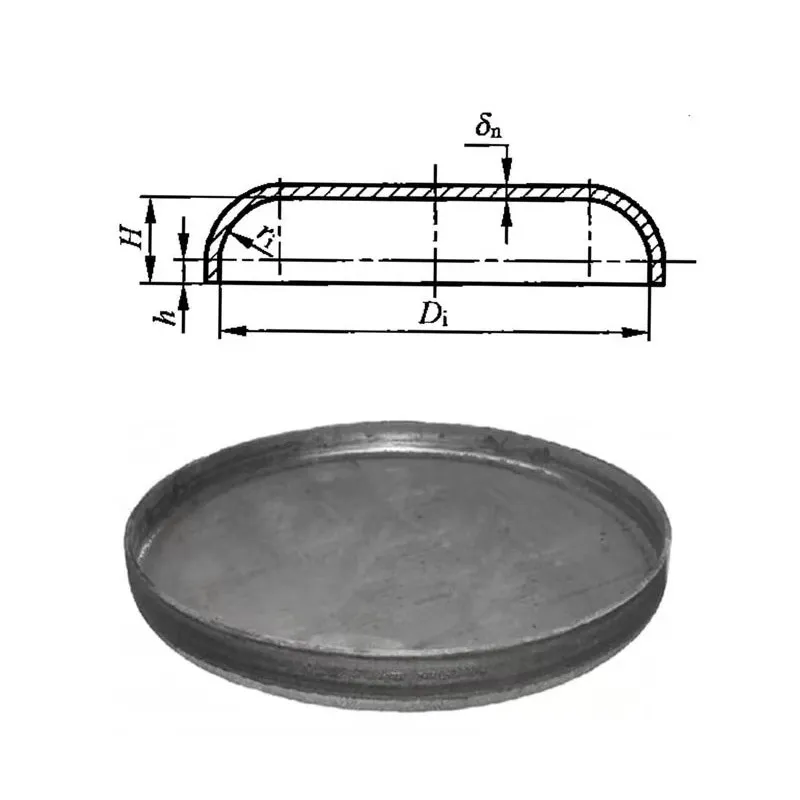
Not all stainless steel cap manufacturers are created equal. The difference lies in the commitment to quality, process control, and customer support. This is where LION-PIPELINE distinguishes itself as a leader in the field.
| Feature | LION-PIPELINE | Generic Manufacturer |
|---|---|---|
| Material Certification | ✅ MTC EN 10204 3.1 on all products, guaranteeing full traceability. | ❌ Often provides only basic compliance certificates or none at all. |
| Manufacturing Process | ✅ Advanced forging and seamless forming for superior strength. | ❌ May use casting or welded construction, which can be weaker. |
| Standard Adherence | ✅ Strict compliance with ASME, ANSI, and DIN standards. | ❌ Wider dimensional tolerances, potential for misfit. |
| In-House Testing | ✅ Comprehensive NDT (PMI, UT, RT, PT) for 100% quality assurance. | ❌ Limited to basic visual and dimensional checks. |
| Customization Capability | ✅ Expert in custom sizes, materials (Duplex), and designs like custom stainless steel chimney cap. | ❌ Limited to standard, off-the-shelf products. |
| Expert Support | ✅ Dedicated engineering team for consultation and problem-solving. | ❌ Sales-focused support with limited technical expertise. |
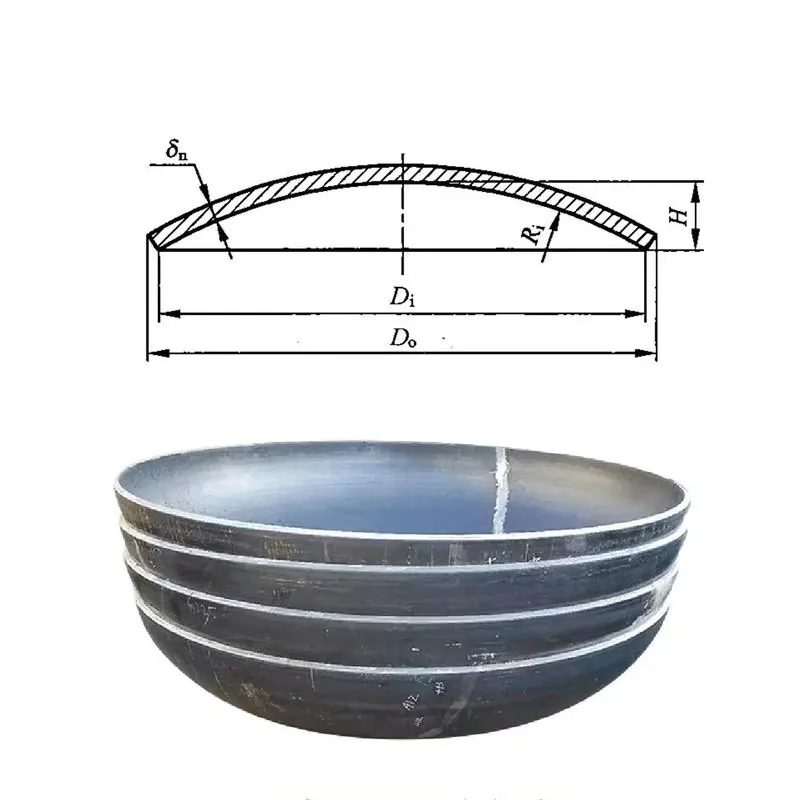
While standard sizes meet most needs, many projects require unique solutions. We are a leading provider of custom stainless steel cap solutions. Our engineering team thrives on challenges, whether it's a non-standard diameter, an unusual wall thickness, or a completely bespoke design. A prime example is the custom stainless steel chimney cap. These require a blend of durability to withstand weather and flue gases, and aesthetic appeal to complement the architecture. We work with clients to design, model, and fabricate caps that are both functional and visually striking, using materials like polished 316L stainless steel for maximum longevity and beauty.
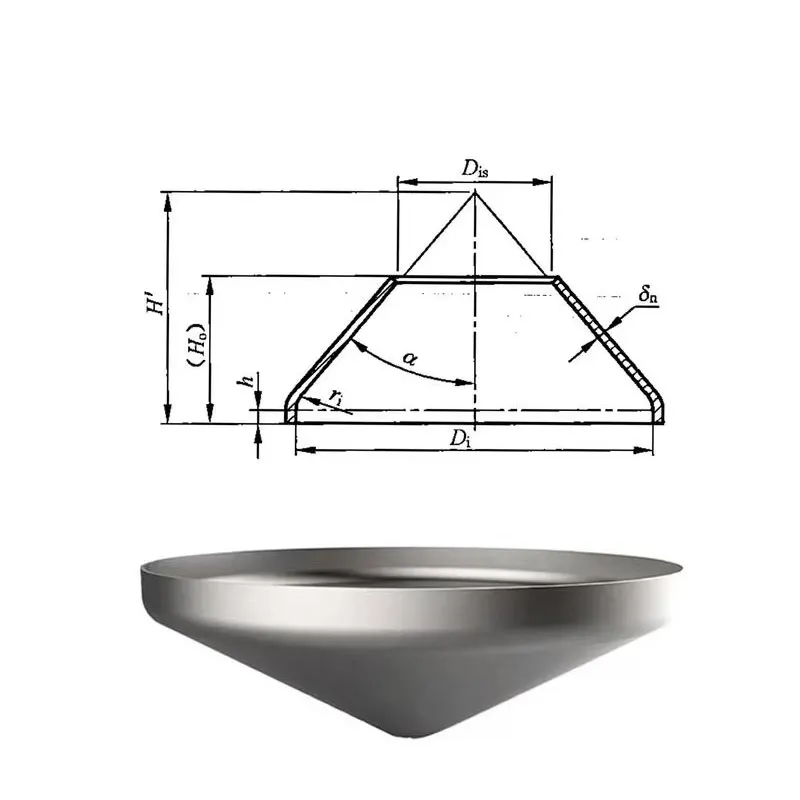
The true measure of a product's quality is its performance in the field. Our stainless steel caps have a proven track record across the most demanding industries.
Challenge: A major oil and gas client needed to permanently seal a redundant pipeline operating at 1500 PSI and handling corrosive sour gas. A failure would be catastrophic.
Solution: We supplied a 24" schedule 80S butt weld pipe cap made from ASTM A403 WP316L stainless steel. The cap was manufactured via forging and underwent 100% radiographic testing (RT) to ensure zero defects.
Outcome: The cap was successfully welded and has provided a flawless, maintenance-free seal for over 5 years, demonstrating exceptional reliability and safety in a critical service environment.
"LION-PIPELINE delivered a perfectly specified cap with full documentation. The quality was evident, and it passed our stringent third-party inspections without issue. Their technical support was invaluable." - Lead Piping Engineer
Challenge: A pharmaceutical manufacturer required removable caps for clean-in-place (CIP) access points in their purified water system. The caps needed to be hygienic and resistant to sterilization chemicals.
Solution: We provided a series of threaded steel cap fittings in 316L stainless steel with a polished, crevice-free internal surface. The NPT threads were precision-machined for a secure fit that prevented bacterial growth.
Outcome: The caps met all FDA requirements, simplifying the plant's validation process. The ease of removal and re-installation has streamlined their sanitation protocols, saving time and labor.
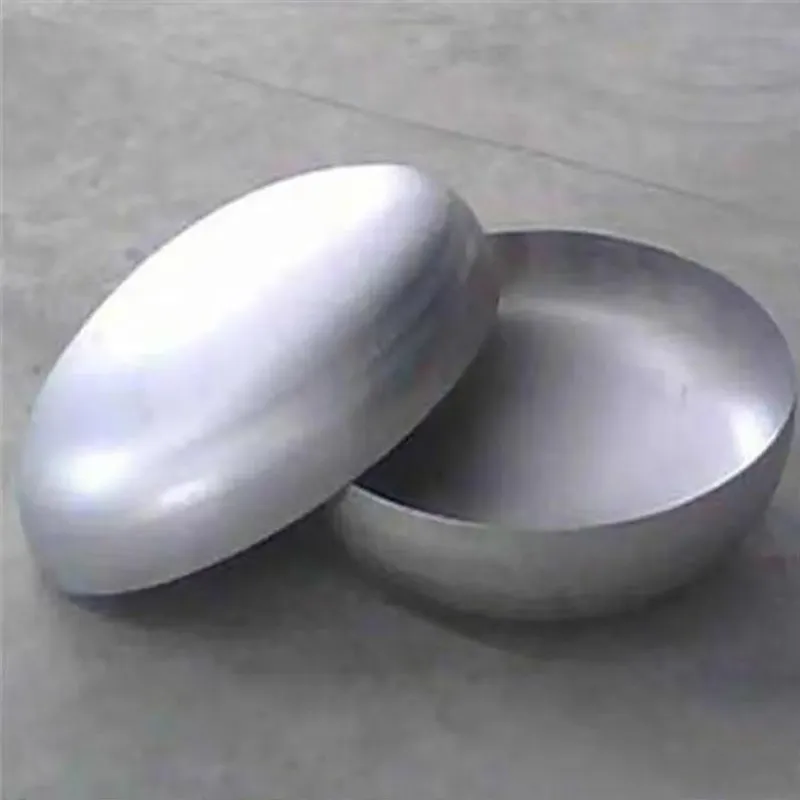
Trust is the foundation of our business. We demonstrate our commitment to you through unwavering quality assurance and transparent practices, embodying the principles of Expertise, Experience, Authoritativeness, and Trustworthiness (E-E-A-T).
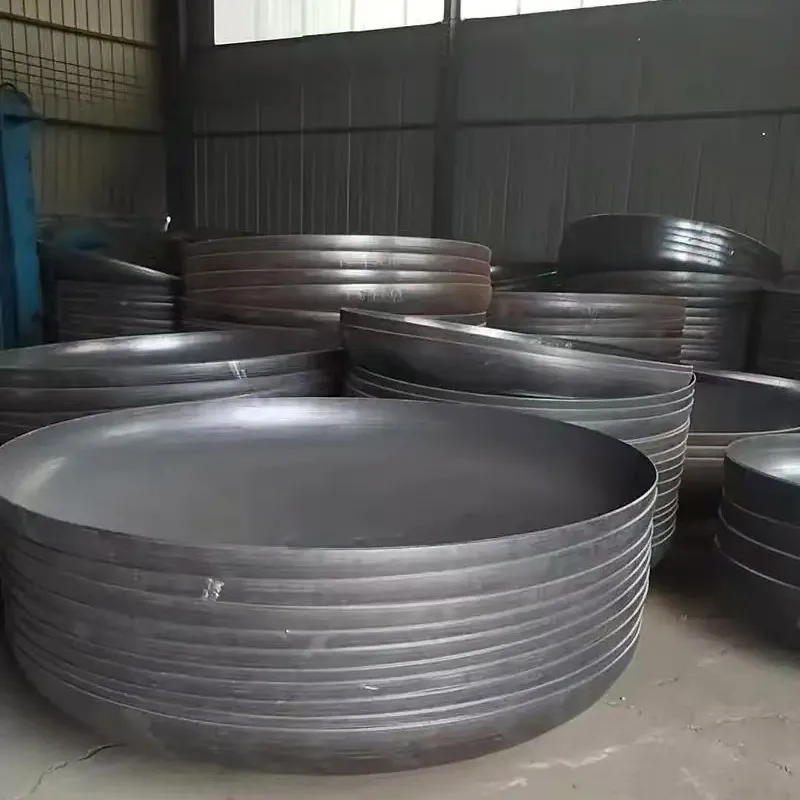
What is the main difference between 304 and 316 stainless steel for a pipe cap?
The primary difference is the addition of molybdenum (about 2-3%) in 316 stainless steel. This gives it significantly enhanced corrosion resistance, especially against chlorides and other industrial chemicals. While 304 stainless steel is excellent for general purposes, 316 is the standard for marine, chemical, and pharmaceutical applications. We strongly recommend 316/316L for any critical or corrosive environment.
What does "Schedule" (e.g., SCH 40S) mean for a stainless steel cap?
"Schedule" is a standard that defines the wall thickness of a pipe or fitting. A higher schedule number indicates a thicker wall, which means the cap can withstand higher internal pressure. It is crucial that the schedule of the stainless steel cap matches the schedule of the pipe it is being fitted to, ensuring a consistent internal diameter and structural integrity.
How do I choose between a butt weld pipe cap and a threaded steel cap?
The choice depends on the application. A butt weld pipe cap is used when a permanent, leak-proof seal is required, especially in high-pressure or high-temperature systems. A threaded steel cap is used when the line may need to be accessed in the future for maintenance, inspection, or draining. Threaded connections are generally used for lower-pressure, less critical applications.
What is an MTC (Mill Test Certificate) or EN 10204 3.1 certificate?
An EN 10204 3.1 MTC is a quality assurance document issued by the manufacturer that certifies the material's chemical composition and mechanical properties. It provides full traceability back to the original heat of the steel. Reputable stainless steel cap manufacturers like LION-PIPELINE provide this certificate with every order, which is essential for quality control and validation in industries like oil & gas and nuclear.
Can you manufacture caps for non-standard pipe sizes?
Absolutely. This is one of our core competencies. We have extensive experience in fabricating custom stainless steel cap solutions for unique dimensions, including large-diameter caps and special designs like the custom stainless steel chimney cap. Contact our engineering team with your specifications to start the process.
What is the typical lead time for an order?
Lead time varies based on size, material, and quantity. We maintain a large inventory of standard stainless steel cap sizes (1/2" to 24") for immediate dispatch. For custom orders, the lead time typically ranges from 2 to 6 weeks, depending on the complexity. We always provide a firm delivery date upon order confirmation.
What are the best practices for installing a butt weld cap?
Proper installation is critical. Key steps include: 1) Ensuring the cap's beveled end and the pipe end are clean and correctly aligned. 2) Using the appropriate welding procedure (e.g., TIG for root pass, SMAW for filling) and a qualified welder. 3) Using a welding rod compatible with the stainless steel grade. 4) Post-weld cleaning (pickling and passivation) to restore the corrosion resistance of the heat-affected zone.
The stainless steel cap is more than just a piece of metal; it is a critical safety component that ensures the integrity of piping systems worldwide. From the precision of a butt weld pipe cap in a power plant to the versatility of a threaded steel cap and the bespoke elegance of a custom stainless steel chimney cap, the quality of this fitting cannot be compromised. By partnering with expert stainless steel cap manufacturers like LION-PIPELINE, you secure not just a product, but a promise of quality, reliability, and performance.
For further technical reading and community discussions on piping standards and material science, we recommend the following resources:
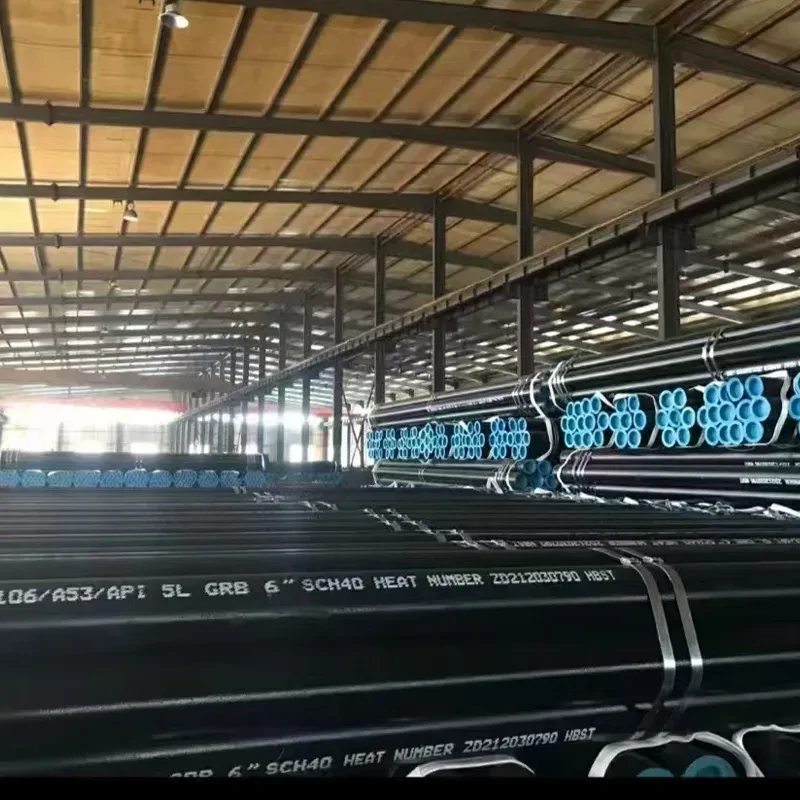
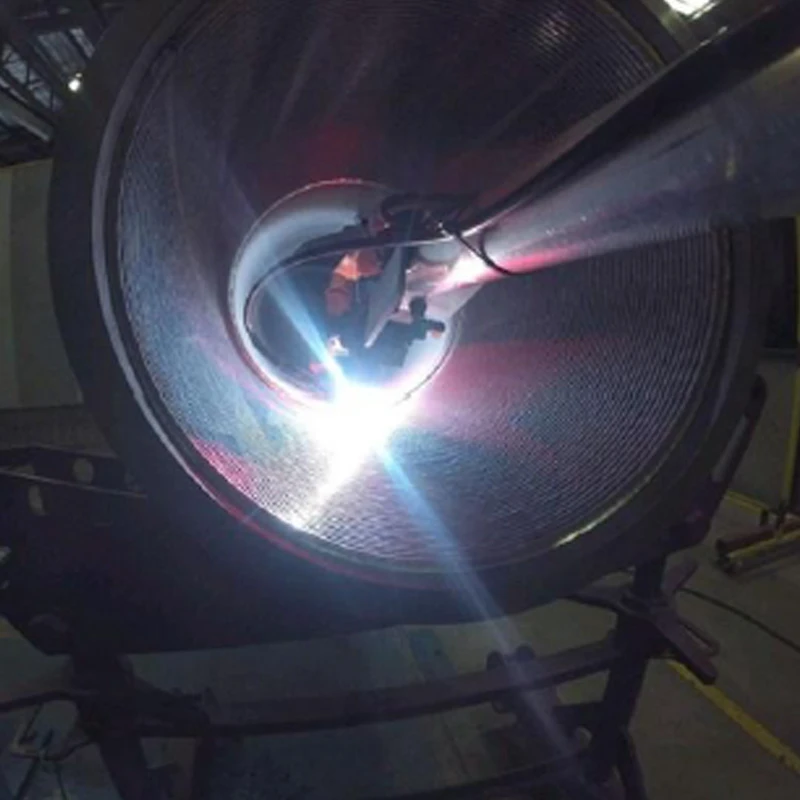
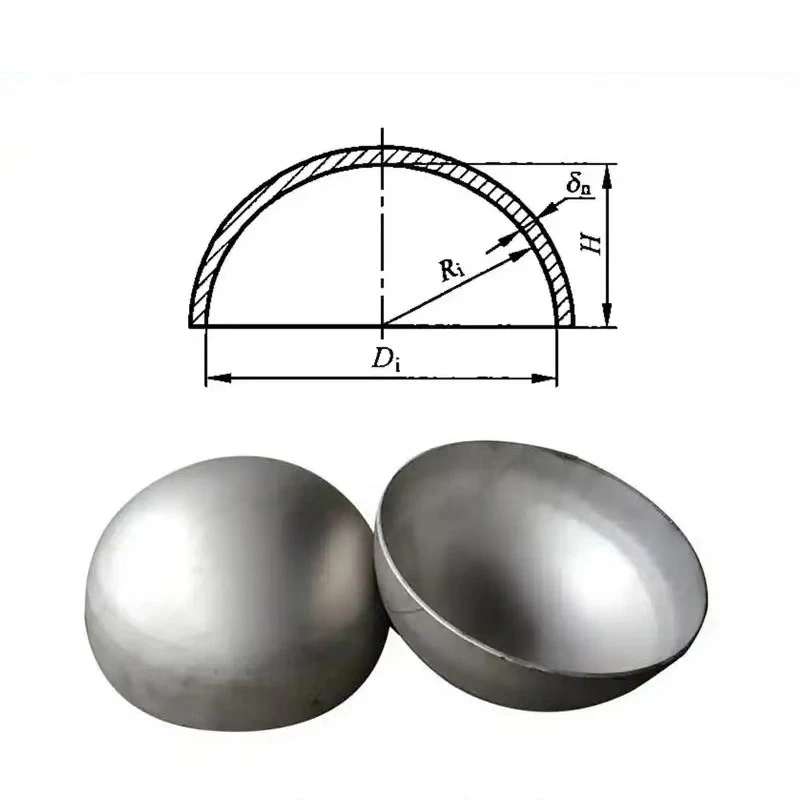
Where to Buy Stainless Steel Pipes and Tubing for Sale Together
The Future of Smart Flange Technology
Tee Pipe Fitting in Industrial Process Piping
Prefabricated Pipe in Shipbuilding Applications
How Anti Corrosion Pipe Extends Pipeline Lifespan
Cts Pipe Fittings for Potable Water Systems
If you are interested in our products, you can choose to leave your information here, and we will be in touch with you shortly.




